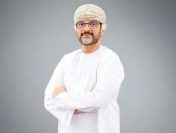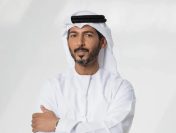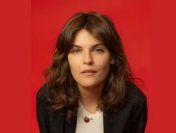We’re in a transformative time for experiential marketing. Brands and agencies are moving away from old-fashioned ‘event thinking’, towards treating experience marketing as multi-channel experiences that maximize impact, and hit marketing goals.
The MCH Global team follows global marketing trends year-round, publishing a book of hundreds of such trends. In the Dubai office we analysed the market and identified five emerging tendencies that we expect to see take off big time in the ME over the next couple of years.
I believe our industry will accelerate developments towards smarter and more integrated activations. We don’t view ‘digital’ as a separate subject in our experience concepts; rather, digital, social, virtual and physical need to be integrated to make an experience effective.
So we pay particular attention to the trend that we call ‘New Hybrid Experiences’. Essentially, a Hybrid Experience is a deeply immersive blend of physical and digital in which the audience experiences both, seamlessly.
Recently, organisers have had to consider how to create attention, emotion and memories in remote audiences. Post-pandemic, these skills will stay. But as the physical aspects of events return, we’ll blend the two.
Our activation for Nissan Infiniti used AR to allow people to experience test drives in a static vehicle. We’ve also been running online workshops with Lego, where participants physically use Lego blocks to express themselves, but we gather to share online. Etisalat’s Virtual Mall was another such example, where shoppers used a giant interface to order their groceries from the metro station. Each of these activations used digital technology, and connectivity to enhance the experience.
We’re currently seeing a surge in online-only events such as streamed conferences or concerts. These are not Hybrid Experiences, as they don’t engage both the physical and virtual. The shared, physical experience will remain powerful, and as they become more scarce, will actually increase in power.
With that in mind, I believe one of the other trends we identified – Festivalisation – will continue to boom too. Creating a feeling of community and shared experience between participants is priceless. It creates lasting memories.
Festivalisation entails a blend of different locations, parallel acts and perfect choreography. Festivals involve active participation, co-creation, spaces of retreat, and social areas. It can turn an event into a multi-format extravaganza: at once real and virtual, expanded and combined.
Brands can of course hold their own ‘festivalised’ activations, to grow community, affinity and excitement among consumers. The VW Dub Drive in Dubai was one such example, where MCH Global helped VW to bring together legions of fans for music, food and, of course, cars.
Or consider ‘Museumification’. By creating real-life spaces designed for sharing, brands can tell their brand story, starting conversations and creating online buzz while they’re at it. The Louvre Abu Dhabi Highway Gallery was a widely revered example of this trend, I hope to see more like it in the ME in coming months.
Festivals, Museums and Hybrids are all dynamic, evolving, platforms for brands to play with. They reach consumers in unexpected ways, stimulating their senses and creating new memories.
Whatever strategy you adopt, financial efficiency and results that come out of these experiences will be key. Brands must start with marketing goals before designing an experience concept or campaign that meets them. And everything must relate back to a strong, coherent and consistent brand story.
Get that right and the possibilities of experiential marketing are huge. Trends help us see the path ahead, they identify what resonates with today’s consumers. In the Gulf region we have amazing spaces, brands and consumers, the potential is huge. Hopefully this new report will give brands and agencies an opportunity to carve a strong regional identity, but driven by global insights.




